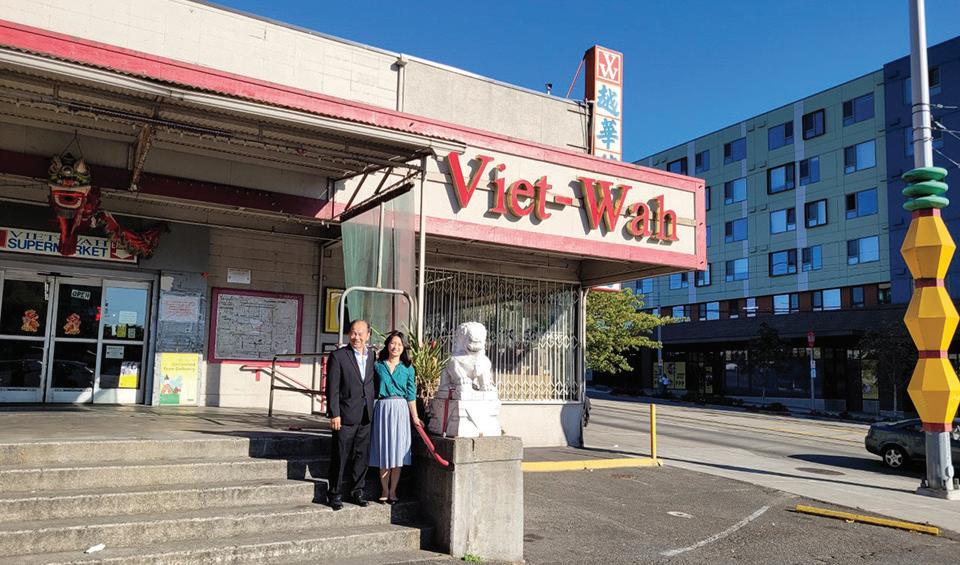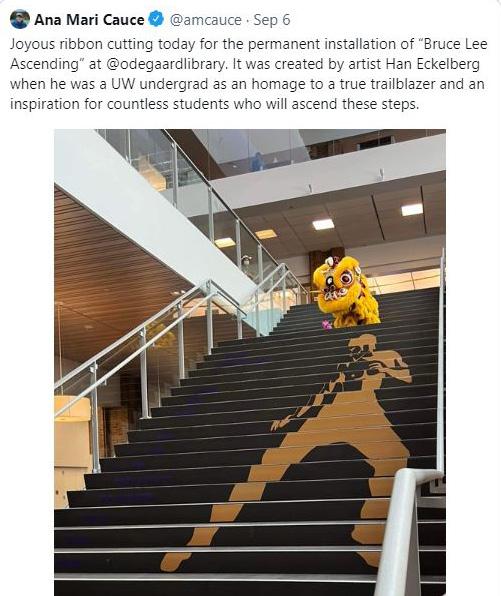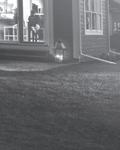By Assunta Ng NORTHWEST ASIAN WEEKLY
Viet-Wah Supermarket in Little Saigon has announced that its last day will be Sept. 30, after nearly 41 years in business.
Located at 1032 South Jackson Street, Viet-Wah was once the biggest store in Little Saigon and inside Asian Plaza. Spanning 15,000 square feet, it housed a travel agency, as well as a Chinese herb store. Little Saigon is part of Chinatown-International District (CID).
“The COVID-19 situation plus an employee shortage” are the reasons the CID Viet-Wah store is closing, said its founder and president, Duc Tran.
“Viet-Wah has been losing about $10,000 a month. The market has been losing money for the past two years.” The store had cut back its hours from seven to six days a week, and it has been unable to hire enough employees.

Little Saigon has lost several businesses during the pandemic and ongoing public safety issues. Just recently, two more big businesses in CID were closed. The Starbucks store at Union Station was closed in July, and Bartell Drugs’ last day was Sept. 14.
However, Tran, 69, said it’s time to retire. A refugee who escaped from Vietnam by boat in 1976, Tran worked two to three jobs to survive in his early days.
see VIET-WAH on 16
Greg Wong, man of many worlds
Seattle’s new deputy mayor
 By Assunta Ng NORTHWEST ASIAN WEEKLY
By Assunta Ng NORTHWEST ASIAN WEEKLY
The iconic image of Bruce Lee and Kareem AbdulJabbar together, symbolizing the unity between Asians and Blacks, was captured in thousands of photos by visitors onto the Tai Tung Restaurant’s storefront in Seattle’s Chinatown-International District (CID). But on Sept. 10, Lee’s portrait suddenly vanished.

“What happened to Bruce Lee?” wondered Evan Chan, the fourth-generation owner of Tai Tung, who
see LEE on 16
CID residents pack City Hall, protest planned shelter

Greg Wong Viet-Wah Supermarket closing
 By Mahlon Meyer NORTHWEST ASIAN WEEKLY
By Mahlon Meyer NORTHWEST ASIAN WEEKLY
Greg Wong grew up poor. And his first job out of college was taking calls from homeless people or others needing assistance.
“Each morning, I would call around to all the shelters and see how many beds were available,” he told the Northwest Asian Weekly.
see DEPUTY MAYOR on 13
By Mahlon Meyer NORTHWEST ASIAN WEEKLY
Senior citizens filed into City Hall. They were there to protect their homes as the city and the county plans to add a massive homeless shelter in their neigh borhood, which is already flood ed with homeless people.
But, mostly, they recounted
see PROTEST on 15
Photo by Assunta Ng
Viet-Wah storefront
Photo provided by Viet-Wah
Who stole the Bruce Lee mural?
CID protestors outside Seattle City Hall
Photo by Assunta Ng
A passerby snaps a photo outside Tai Tung, where the Bruce Lee mural was stolen.
VOL 41 NO 39 SEPTEMBER 24 – SEPTEMBER 30, 2022 FREE 40 YEARS YOUR VOICE PRSRT STD U.S. Postage Paid Permit No. 746 Seattle, WA ■ 412 Maynard Ave. S., Seattle, WA 98104 • t. 206.223.5559 • f. 206.223.0626 • editor@nwasianweekly.com • ads@nwasianweekly.com • www.nwasianweekly.com
■ NAMES IN THE NEWS
Mayor to appoint Diaz as SPD chief
Her reporting has been honored with a national Peabody Award, four national Murrows, and multiple regional Emmys— often for covering topics related to race or gender inequities.
The annual ACRS gala raises money for vital programs and multilingual services that help support more than 30,000 community members in need.
King Wha restaurant closing
King Wha Restaurant has been a mainstay in Burien for so many years, but all good things must come to an end. Our last day of business will be October 3rd.”
One customer wrote, “Happy retirement to you both! Our family has enjoyed so many memorable meals at King Wha.”
The restaurant is located at 605 Southwest 152nd Street.
Eala becomes Philippines’ first Grand Slam winner
Seattle Mayor Bruce Harrell announced on Sept. 20 that he will appoint interim Chief Adrian Diaz as the next permanent Chief of the Seattle Police Department, following an extensive national search and robust community engagement.

“Throughout this process…Chief Diaz was the clear choice to respond to concerns about crime and safety and to drive the effective response that will make a real impact,” said Harrell in a statement.
Diaz will begin a neighborhood tour to build on and expand his strong and long standing community ties. His confirmation as permanent chief of police requires City Council confirmation.
Li to keynote ACRS gala

Michelle Li will be the keynote speaker for ACRS’s Benefit Gala at MOHAI on Oct. 1, ACRS announced on Sept. 17.

A former KING 5 anchor, Li co-launched the Very Asian Foundation (veryasianfoundation.org) in January 2022. Her response to a racist voicemail became a global movement of unity.
King Wha restaurant in Burien is closing its doors for good next month.

In a Sept. 7 Facebook post, the Yu family wrote, “Our family has been serving the Burien community since 1976. You’ve celebrated birthdays, graduations, weddings, and more with us. It has been our pleasure to serve you, your children, and your children’s children for almost half a century.
Alexandra Eala became the first player from the Philippines to win a tennis Grand Slam singles title after beating No. 10 seed Lucie Havlickova of Czech Republic in the final to win the U.S. Open junior girls’ title in Flushing Meadows, New York on Sept. 10.

The 17-year-old from Quezon City says she hopes her victory will inspire younger players from her country.
Earlier this year, Eala claimed three bronze medals for the Philippines at the 31st Southeast Asian Games in the women’s singles, mixed doubles, and women’s team events.
2825 N.E. Sunset Blvd. Renton, WA 98056 425-336-6888
Open daily: 9 am–7 pm vietwah.com
After 40 years of serving the community in the CID, we have made the very difficult decision to close Viet-Wah Supermarket at the end of September.

We would like to thank our customers who supported this business from the very start and continued to come back and visit over the years, and the CID community –especially Friends of Little Saigon. Thank you also to our staff, both current and former, for their dedication and for making Viet-Wah Supermarket the store that it is. We are
also grateful to our longtime landlord, Dennis Chinn and family.
You can continue to reach us at 206-329-1399 or jackson@vietwah.com.

Our Renton store at 2825 NE Sunset Blvd is still open and will operate as normal.
Thank you for your support. We will miss you!
Sincerely, — The Tran Family
Chief Adrian Diaz
Yu family
Michelle Li
2 SEPTEMBER 24 – SEPTEMBER 30, 2022asianweekly northwest 40 YEARS
FINANCE
5 things to do when you get your first paycheck
 By Rocky Fong CHASE COMMUNITY MANAGER
By Rocky Fong CHASE COMMUNITY MANAGER
Getting your first paycheck is an exciting experience and an opportunity to kickstart your financial journey. Mapping out your short and long-term financial goals early on will allow you to build a strong foundation for your future.
“That first paycheck is such a great moment and an opportunity to start managing your money,” said Chase Community Manager Rocky Fong.
“Direct deposit and automatic savings are some ways that we can stay on top of our goals.”
Here are five things to help you make the most of that first paycheck:
1. Open a bank account: Checking accounts allow you to deposit money, make transfers, withdraw cash, pay bills, and take care of other banking transactions either in person, online, or through your bank’s mobile app. Most accounts come with a debit card that can be used anywhere cards are accepted. What’s important is that you’re fitted with the account that best suits your needs. Learn more about the documents you need to open an account.
2. Set up direct deposit: For quick access to the money you earn, set up direct deposit. It will make your funds available in your account on payday, making it easier to pay your bills, send money, and meet financial obligations
on time, and without needing a trip to the bank or ATM.
3. Set up automatic savings: Autosave helps you reach
your savings goals with automatic transfers from your Chase checking account to your Chase savings account— just set it, forget it, and watch your savings grow! For instance, every time you get paid, pay yourself first or set up an automatic transfer of even $1 per day. Autosave allows you to adjust your goals or pause at any time. Savings goals are personal, and setting money aside to build an emergency fund for unexpected life events is a great habit to start.
4. Tackle your debt: Assess your current debt—like student loans or credit cards—then tackle the most critical ones first with a high interest rate. A local Chase banker can help you create a plan so it isn’t overwhelming. Having a plan often comes with assurance and peace of mind.
5. Plan for the future: If your employer offers a retirement account, get informed about how it works and consider contributing to it. It is never too early to start saving for your future. The more proactive you are in planning for these life events, the less of a burden they become when the time comes.
For more information, visit your local Chase branch and speak to a banker or visit chase.com/communityteam. Deposit products provided by JPMorgan Chase Bank, N.A. Member FDIC.
Sponsored content from JPMorgan Chase & Co.
King County launches new programs to support immigrants
The Department of Community and Human Services (DCHS) announced the launch of two new programs on Sept. 7, providing financial support to immigrants in King County:
King County Immigration Fee Support Program can help King County immigrants pay eligible fees associated with applying for legal status, including filing fees with U.S Citizenship and Immigration Services (USCIS) and Executive Office for Immigration Review.
Immigration application costs vary from a couple hundred dollars to thousands of dollars per applicant. Applicants must be living, working, going to school in King County or currently detained in ICE facilities but previously living, working, or going to school in King County in order to be eligible for support.
Approved applicants can receive up to $3,000 per individual and up to $6,000 per household, depending on fees incurred or expected for the year 2022.
King County Relief Fund can provide financial assistance to help King County immigrants who have been disproportionately impacted by the COVID-19 pandemic, but are ineligible for federal stimulus money and unemployment benefits. Approved
applicants can receive $1,000.
Call for support: 1-844-724-3737 (Monday to Friday from 9 a.m.–6 p.m.)
CISC is able to help community members access these programs.
Contact Aimee Zhu at 206-393-2110 or aimeez@cisc-seattle.org.

3SEPTEMBER 24 – SEPTEMBER 30, 2022YOUR VOICE asianweekly northwest ■
■ COMMUNITY NEWS
Bruce Lee Ascends: UW permanent installation
By Dylan Hartano, OCA-GS intern SPECIAL TO THE NORTHWEST ASIAN WEEKLY
Sept. 6 marked the official debut of Bruce Lee Ascending, a permanent art installation at the Odegaard Undergraduate Library (OUGL) at the University of Washington (UW). The event is sponsored by UW’s American Ethnic Studies Department, the OCA Asian Pacific Advocates of Greater Seattle (OCA-GS), and the Bruce Lee Foundation, with additional support provided by UW Libraries and the UW School of Art History and Design.
The art piece, featured on the main staircase of OUGL, was created by current UW

Communications graduate student Han Eckelberg, while he was an UW undergraduate student in Art and American Ethnic Studies.
Eckelberg created the project for a class with Professor Whitney Lynn in Winter 2020. He initially installed it at OUGL, just before the pandemic began. It quickly proved popular among the student population and was voted the Best Artwork at the 2020 UW Maker’s Summit.
According to Eckelberg, Bruce Lee Ascending pays homage to Bruce Lee who studied drama and philosophy at the UW in the early 1960s. Lee’s quote, “When one has reached maturity in the art, one will have a formless form,” particularly inspired Eckelberg. “This artwork reminds all students that, as the quote from Bruce Lee
suggests, gaining knowledge in any art requires hard work and discipline.”
“As a central gathering place for our UW community, OUGL is a fitting place for the timeless message embodied by Bruce Lee Ascending,” said Simon Neame, Dean of University Libraries. “Aligned with the Libraries’ values to enrich the student experience, we are honored to provide a permanent home for this incredible artwork that will be seen by students for years to come.”
For UW student and OCAGS intern Brooklyn Hose, Lee’s personal story is particularly moving.
“Bruce Lee persevered against see UW on 12
Proposal to preserve Bruce Lee martial arts studio
The Northwest Museum of Legends and Lore, home of the Seattle Bruce Lee Fan Club, will be submitting a formal application to the City of Seattle’s Landmark Preservation Board—to nominate Bruce Lee’s first formal martial arts studio for historic preservation.
A presentation of the 40-page nomination application will be presented at a Sept. 30 news conference in the Bertha Knight Landes room at Seattle City Hall. Held from 4-5 p.m., it will be open to the public.
Anticipated to present are Bruce Lee’s first students, Andy Kimura, son of Taky
Kimura, and fellow martial artists. 4750 University Way Apartments is the site of the Seattle Jun Fan Gung Fu Institute and there are rare photos of Bruce Lee at the location.
Given the history and formal beginnings of Bruce Lee’s martial arts teachings at
Celebrating Seattle-area
this location, the Seattle Bruce Lee Fan Club considers this to be one of the most culturally valuable properties in Seattle. If designated as a landmark, the status will help preserve the property from demolition.
By Kai Curry NORTHWEST ASIAN WEEKLY

On Sept. 13, 2022, Comcast Washington and Evergreen Goodwill (EG) hosted an executive meet and greet breakfast for organizations around Puget Sound who are taking part in Comcast’s Lift Zone labs initiative to network and share how they are using technology to achieve digital equity.

Attending organizations, some from farther afield, such as Easter Seals in Bremerton and Boys and Girls Club in Lynnwood, had the opportunity to share how they use their labs.
“We retrofitted our multipurpose rooms down on the first floor…focusing on bringing digital equity for our older adults, who were very isolated for a very long time during the pandemic, through our Club Bamboo program,” shared Michael Byun, executive director of Asian Counseling and Referral


Service (ACRS). “We’re now able to provide a situation where it’s immersive for both, those who are in person and those who are still uncomfortable, with coming in person.”
What is a Lift Zone? It is a hosted space of boosted internet where community members can use computers in a safe environment. In 2020, Comcast announced its intention to provide over 1,000 Lift Zones around the country. In western Washington, though, and in Spokane, at the Carl Maxey Center, Lift Zones look different as they are labs with advanced technology for multiple uses, such as facilitating presentations with an app that turns your phone into a microphone.
“We not only want to provide you with Wi-Fi, we want to give you upgraded technology…to make sure that you have all the tools you need…to support your community, support your programs, make
1:30
Dalila Wilson-Scott, Comcast EVP and Chief Diversity Officer, with ACRS Executive Director Michael Byun.
Diem T. Ly, Comcast Washington Director of Community Impact - External Affairs.
Huan Do, Evergreen Goodwill Senior Director of Finance, Contracts, and Program Strategy.
Photos by Kai Curry
4 SEPTEMBER 24 – SEPTEMBER 30, 2022 40 YEARSasianweekly northwest ■ COMMUNITY NEWS
see COMCAST on 12
Lift Zone labs
RESTAU R ANT • Catering • Cocktails • Valet parking • Banquet facilities Hours Sun.-Thurs. 10 a.m.-11 p.m. Fri.-Sat. 10 a.m. -
a.m. 655 S. King St. Seattle 206-622-7714 or 622-7372 Established in 1935 TAI TUNG
Biden: US would defend Taiwan against Chinese invasion
BEIJING (AP) — President Joe Biden says U.S. forces would defend Taiwan if China tries to invade the self-ruled island claimed by Beijing as part of its territory, adding to displays of official American support for the island democracy.
Biden said “yes” when asked during an interview broadcast on Sept. 18 on CBS News’s “60 Minutes” program whether “U.S. forces, U.S. men and women, would defend Taiwan in the event of a Chinese invasion.“
CBS News reported the White House said after the interview U.S. policy hasn’t changed. That policy says Washington wants to see Taiwan’s status resolved peacefully but doesn’t say whether U.S. forces might be sent in response to a Chinese attack.
Tension is rising following efforts by Chinese President Xi Jinping’s government to intimidate Taiwan by firing missiles into the nearby sea and flying fighter jets nearby and visits
to Taipei by political figures including U.S. House Speaker Nancy Pelosi.
Taiwan’s foreign ministry expressed “sincere gratitude” to Biden for “affirming the U.S. government’s rock-solid promise of security to Taiwan.”
Taiwan will “resist authoritarian expansion and aggression” and “deepen the close security partnership” with Washington and other governments “with similar thinking” to protect regional stability, the statement said.
Washington is obligated by federal law to see that Taiwan has the means to defend itself but doesn’t say whether U.S. forces would be sent. The United States has no formal relations with the island but maintains informal diplomatic ties.
Taiwan and China split in 1949 after a civil war that ended with the Communist Party in control of the mainland. The
two governments say they are one country but dispute which is entitled to be the national leader.
Beijing criticizes official foreign contact with Taiwan’s elected government as encouragement to make its de facto independence permanent, a step the mainland says would lead to war.
Washington says it doesn’t support formal independence for Taiwan, a stance Biden repeated in the interview broadcast.
“Taiwan makes their own judgments about their independence,” the president said. “We’re not encouraging their being independent.”
In May, Biden said “yes” when asked at a news conference in Tokyo whether he was willing to get involved militarily to defend Taiwan if China invaded.
In Hong Kong, public grief over Queen doubles as dissent
By ZEN SOO and ALICE FUNG ASSOCIATED PRESS
HONG KONG (AP) — Hundreds of Hong Kong residents are lining up in front of the British Consulate General for hours each day to pay their respects to Queen Elizabeth II, leaving piles of flowers and handwritten notes.
The collective outpouring of grief after her death on Sept. 8 is perhaps the most ardent among the former British colonies, where mourning has been generally subdued. It’s seen by some experts as a form of dissent against increasingly intrusive controls by communist-ruled Beijing, which took over the territory in 1997.
Some Hong Kongers are nostalgic for what they view as a past “golden age” under Britain’s not entirely democratic colonial rule, when the city of about 7 million people gained stature as a world financial center and tourism destination.
The queen’s death has sparked a flurry of interest in British memorabilia, among other things.
The Queen is nicknamed “si tau por” in Hong Kong. Pronounced “see-tao-POHR“ In the local Cantonese dialect, that translates to “boss lady.”
“We used to call her ‘si tau por’ when we were under her rule. It’s simply a way of

showing respect to her. There was a feeling of kindness from her, she’s not the kind of boss who is up above you,” said CK Li, a resident who queued for over two hours to pay his respects.
Another resident, 80-year-old Eddie Wong, said she was there “out of true feelings” from her heart.
“People in Hong Kong love her,” said Wong. “Because when we were under her rule, we enjoyed democracy and freedom and we were very grateful. I want to bid farewell to ‘si tau por’ who is in heaven.”
With its July 1, 1997, takeover China promised to leave Hong Kong’s Western-style civil liberties and institutions intact for at least 50 years. Many raised in the former territory grew up hoping for still greater freedoms.
But following months of anti-government protests in 2019, Beijing imposed a tough national security law on the city, seeking to stamp out public dissent.
News outlets deemed overly critical of Beijing have been forced to shut down and dozens of activists have been arrested. The mass protests ended. Tens of thousands of Hong Kong residents have chosen to emigrate to the U.K. and other places such as Taiwan.
So far, the authorities have allowed the orderly, somber shows of respect to continue.
“I would imagine that some people are
going there not so much for nostalgia reasons, but as a kind of protest, now that dissent is suppressed,” said John Burns, an honorary professor of politics and public administration at the University of Hong Kong.
“Some people, for example, who agree with the kind of universal values that the U.K. stands for, and that were incorporated in our Bill of Rights at the end of colonialism could participate in this as a form of protest,” Burns said.
Emotions in Hong Kong are running high, said former Democratic Party chairwoman and ex-lawmaker Emily Lau, given the city’s political situation and its struggles in fighting COVID-19.
“There are some who are genuinely nostalgic and have sentimental feelings for the Queen, but there are also people who have grievances about the current situation in Hong Kong,” Lau said.
“We cannot rule out that some have used this occasion to express that,” she said.
At the same time, public figures in Hong Kong are being scrutinized over their response to the queen’s passing, and drawing criticism if they are viewed as too admiring of her reign or British rule in general.
Commenters on mainland Chinese social media sites have blasted veteran actor Lau Kar-ying, for posting a selfie outside the British Consulate on Instagram with a caption including the line, “Hong Kong was a blessed land under her reign.”
Harshly criticized for attributing Hong

Kong’s prosperity to British rule, Lau deleted the post and issued a video apology on the Chinese microblogging site Weibo. He appealed to people not to read too much into what he said.
“I am Chinese and I will forever love my motherland. I’m sorry,” Lau said.
Not all Hong Kongers are sentimental about British rule. Some resent London’s decision not to grant them full British citizenship, instead giving them British National Overseas passports before the handover, which do not guarantee a right to live in the U.K.
“The British took away the rights of those born in Hong Kong before 1997. They didn’t protect those rights,” said Leslie Chan, who said he had no plans to show his respects to the queen. “When the British government discussed with China about the future of Hong Kong, Hong Kongers were cut off from the discussion,“ he said.
Some in Hong Kong are only focusing on the last few decades of British rule before the handover to China, when the city became increasingly prosperous and the colonial government burnished its legacy with new parks, train lines and other modern amenities.
British rule in Hong Kong benefited the territory in some ways but colonialism is ultimately harmful for its hegemony and racism, said Burns.
“When you’re talking about the benefits of colonialism, you cannot just take the last 10 years or 20 years in Hong Kong,” he said.
“You have to look at the whole thing.”
5SEPTEMBER 24 – SEPTEMBER 30, 2022YOUR VOICE asianweekly northwest ■ WORLD NEWS
THRU FEB 19, 2023
EXHIBIT, “WE ARE CHANGING THE TIDE: COMMUNITY POWER FOR ENVIRONMENTAL JUSTICE”
The Wing Luke Museum, 719 S. King St., Seattle Thu-Sun, 10 a.m.–5 p.m. wingluke.org/we-are-changingthe-tide
SEP 23 & 24
TALK IT UP! INSPIRING ASIAN AMERICANS
Theatre Off Jackson, 409 7th Ave S, Seattle
7:30 p.m.
Tickets: click4tix.com/TalkItUp
27
KING COUNTY COUNCIL ON SAVE THE CID
Hing Hay Park - 11:45 a.m.
Outside King County Courthouse - 12:30 p.m. friendsofseattlecid.com
30
JIMMY O. YANG COMEDY SHOW
Moore Theatre, 1932 2nd Ave., Seattle
7 p.m.
Tickets at https://bit.ly/3Kqr6Mw
OCT 3-9
JOIN US IN CAMBODIA TO EXPERIENCE A WEEK-LONG JOURNEY TO THE UNIQUE CAMBODIAN CULTURE maxglobalexp.org
9

A FAMILY-FRIENDLY 5K/10K, “ALASKA AIRLINES DAWG DASH,” SUPPORTS UWAA’S GENERAL SCHOLARSHIP FUND
Through UW’s Iconic Seattle Campus 9 a.m. Register at washington.edu/alumni/ dawgdash
15
CISC’S 50TH ANNIVERSARY FRIENDSHIP GALA
The Westin Bellevue, 600 Bellevue Way NE, Bellevue 5:30 p.m. cisc-seattle.ejoinme. org/50thGala
19
WASHIN KAI PRESENTS, “WHAT IS HAIKU?”
UW, Kane Hall 210 7-8:30 p.m. Register at events.uw.edu/WhatisHaiku
24
PEACETREES VIETNAM’S 27TH ANNIVERSARY VIRTUAL CELEBRATION 6-7 p.m. Register at peacetreesvietnam.org
WALK FOR RECONCILIATION AGAINST RACISM
Union Station Tacoma 9:30 a.m.-2 p.m. RSVP at info@crpftacoma.org
NOV 10
ED HILL: LIVE Here-After, The Crocodile, 2505 1st Ave., Seattle 7-8:30 p.m. Tickets at ticketweb.com
DONATE YOUR CAR TO CHARITY. Receive maximum value of write off for your taxes. Running or not! All conditions accepted. Free pickup. Call for details, 855635-4229.
ELIMINATE GUTTER CLEANING FOREVER! LeafFilter, the most advanced debris-blocking gutter protection. Schedule a FREE LeafFilter estimate today. 20% off Entire Purchase. 10% Senior & Military Discounts. Call 1-888-360-1582.
ADVERTISE STATEWIDE with a $325 classified listing or $1600 for a display ad. Call this newspaper or 360-344-2938 for details.
ATTENTION: OXYGEN USERS. Gain freedom with a Portable Oxygen Concentrator! No more heavy tanks & refills! Guaran teed lowest prices. Call the Oxygen Concentrator store: 844-495-7230.
BEAUTIFY YOUR HOME with energy efficient new windows! They will increase your home’s value & decrease your energy bills. Replace all or a few! Call now to get your free, no-obliga tion quote. 866-944-4248.
AssuntA ng Publisher assunta@nwasianweekly.com
John Liu Associate Publisher john@nwasianweekly.com

Ruth BAyAng Editor editor@nwasianweekly.com
hAn Bui Layout & Web Editor han@nwasianweekly.com
Account Executives
KeLLy LiAo kelly@nwasianweekly.com
John Liu
john@nwasianweekly.com
geoRge hiRA ghira@nwasianweekly.com
The only weekly English-language newspaper serving Washington’s Asian community. The NW Asian Weekly has one simple goal: “To empower the Asian community.”
The Editorial Board reserves the right to reject any advertisement, letter or article. Subscriptions cost $40 for 52 weeks of the NW Asian Weekly and $30 for 52 weeks of the Seattle Chinese Post. The NW Asian Weekly owns the copyright for all its content. All rights reserved. No part of this paper may be reprinted without permission.

412 Maynard Ave. S., Seattle, WA 98104 • t. 206.223.5559 editor@nwasianweekly.com • ads@nwasianweekly.com • www.nwasianweekly.com

6 SEPTEMBER 24 – SEPTEMBER 30, 2022 40 YEARSasianweekly northwest View the solution on page 14
29
■ COMMUNITY CALENDAR
Updated “Quantum Leap” jumps off from where the older show ended
By Kai Curry NORTHWEST ASIAN WEEKLY

On Sept. 19, 2022, a new “Quantum Leap” television series, with a new Asian hero, “leapt” off the time traveler platform on NBC. They don’t make any claims about it being an entirely different show, so much as seamlessly transitioning from where the prior show left off, to today.

The original show aired five seasons, from 1989 to 1993, and had a fairly solid fanbase. Scott Bakula starred then as the lead character, “Dr. Sam Beckett” (I just keep thinking of the writer of “Waiting for Godot” every time I hear that name), the physicist who goes rogue and jumps into the “accelerator” without permission when the government threatens to stop funding.
In this reboot and the original, Beckett, now “Dr. Ben Song,” played by Raymond Lee, is indeed able to time travel, but every time he “leaps,” he’s put

into a different body and has partial amnesia. Also, in order to leave, or leap again, or whatever he’s up to, he has to solve some historical dilemma so that it reaches a “better” outcome—he has to help someone.
Come to think of it, the reboot is exactly the same. The team, which is definitely more diverse now—there are at least two Asian main cast members, one Black, and one nonbinary— is still trying to hide their
unorthodox activities in case of the program being halted. They are still part of government and military operations. There is still a hologram that follows Ben around and helps him, except now it’s his fiancée that he can’t remember, “Addison,” played by Caitlin Bassett. It’s 30 years later, yes, and the creators linked the two series together
QUANTUM LEAP
Raymond Lee as Dr. Ben Song
Photo by: Ron Batzdorff
7SEPTEMBER 24 – SEPTEMBER 30, 2022 asianweekly northwest YOUR VOICE
see
on 14 ■ AT THE MOVIES
Fairy tales with a twist
 By Samantha Pak NORTHWEST ASIAN WEEKLY
By Samantha Pak NORTHWEST ASIAN WEEKLY


Six Crimson Cranes
By Elizabeth Lim Knopf Books, 2021
Shiori’anma is the only princess in Kiata, and she has a secret. In a kingdom where magic is forbidden, she has it running through her veins. Typically keeping it concealed, she ends up losing control of her magic the morning of her betrothal ceremony, where she’s set to meet her husband-to-be for the first time. While this stops the wedding (which she never wanted to begin with), it also catches the attention of her stepmother, Raikama.
A sorceress herself, Raikama banishes Shiori to a far corner of the kingdom and turns her six brothers into cranes—warning the princess that for every word she speaks, one of her brothers will die. Penniless, voiceless, and mute, Shiori searches for her brothers. Along the way, she discovers a conspiracy to seize the throne and realizes she can make things right—with the help of a shapeshifting dragon, her trusty, enchanted paper bird, and the same boy she fought not to marry.
“Cranes” is a story that combines elements from Western fairy tales and East Asian folklore. Lim does a great job of weaving them all together into a story about a young woman who’s been forced to start her life over, away from everything and everyone she’s ever known. I really enjoyed how Lim took the archetypes many of us are familiar with—the “evil” stepmother, a young woman relegated to a lower social position, a prince in search of a missing princess, with only a slipper as a

clue—and put her own twist on them. It’s also fun to see how these different elements come to fruition in the end.
Shiori is a strong and smart character. And while she always had a rebellious streak as a princess, it’s not till Raikama curses her that she truly learns how to stand on her own two feet and stand up for what’s right. She shows readers how being voiceless doesn’t mean you can’t speak up for yourself.
Once More Upon a Time: An Enchanting Romantic Fairy Tale
 By Roshani Chokshi Sourcebooks Casablanca, 2021
By Roshani Chokshi Sourcebooks Casablanca, 2021
Meet Imelda and Ambrose, a princess and prince who meet, fall in love, and get married over the course of a
couple days. But unlike other fairy tales, the wedding isn’t followed by the pair riding off into the sunset and living happily ever after. Thanks to a poisonous tomato that leaves Imelda ill and on her deathbed, Ambrose makes a deal with a witch, who makes them forget their love for each other, in exchange for Imelda’s life.
Then a year and a day pass and their true story begins.
To reclaim their hearts’ desires, Imelda and Ambrose embark on a quest together, braving magical landscapes and fighting off horrible creatures along the way. They may not have a trusty steed, but they do have an enchanted cloak that thinks it’s a horse. And as they get closer to the end of their journey, the magically
8 SEPTEMBER 24 – SEPTEMBER 30, 2022asianweekly northwest 40 YEARS
see SHELF on 12
BOOK RECOMMENDATIONS ■ ON THE SHELF
Alice Wong
disabled Asian female activist, publishes anti-memoir
 By Kai Curry NORTHWEST ASIAN WEEKLY
By Kai Curry NORTHWEST ASIAN WEEKLY

When I first started reading Alice Wong’s memoir, Year of the Tiger, published Sept 2022, even while I was still in the introduction, I thought, “Wow, this lady is mean.” By the time I got to the end, I thought, “Gosh, this lady is a saint.” I don’t know Wong, but I’m guessing she’d prefer the first. What you learn, though, while reading this 360-odd pages of previously published writing, sprinkled with new writing, cartoons, lists, and blog transcripts is that Wong is not mean nor a saint. But she is angry. It’s the kind of anger that comes from someone who cares so much about justice, equity, and diversity, and yet keeps getting thwarted. It’s anger that serves her well.
“So far, rage has been a generative force balanced with rest and pleasure,” Wong says. “But I gotta be honest, I am tired.” As a person with muscular dystrophy—a degenerative muscle disease—Wong has to fight for the right of her very existence.
“I’ve always been an activist, whether I wanted to be or not,” she told the Northwest Asian Weekly. Every single day, Wong feels viscerally the precariousness of life in a way many of us only felt for the first time due to the COVID-19 pandemic. BTW, her commentary on the carelessness of people partying at the beach during that first spring break of COVID-19 in 2020 is on point and made me angry, too, all over again.
Wong is the editor of a previous collection of stories on disability called Disability Visibility. She feels strongly about the importance of telling stories—even if it’s only to yourself.
“To me, that is a form of activism. To really amplify our lived experience,” she said. While she spent the first years of her life shrinking at how “visible” she felt in a world of able-bodied persons, in her wheelchair, unable to keep up with the rest of the class, for her adult life she has been an advocate for greater visibility of disabled people in a world that would like to pretend they don’t exist, and if they do have to come into contact with them, pay them less, and feel sorry for them because their life just must not be worth living.
There are some who would even prefer that someone like Wong be dead.
“As a disabled woman of color, my life is unavoidably high risk,” she said. Take philosopher Peter Singer, who in Wong’s eyes is a modern example of the proliferation of eugenics. Or the mom, Tania Clarence, who killed her three disabled children in 2014 because she could “see no hope for the future” for them.

“I am an unwitting character in a eugenic horror movie based on real events,” Wong said.
She has a love-hate relationship with
activism and so when Wong puts out a memoir, it’s with hesitation and a heavy dose of revulsion that maybe her book will just be the “token” disabled autobiography of the year. Where are the disabled authored cookbooks she asks? Where are the disabled people telling their regular, everyday stories without having to “represent”? For those reasons, she didn’t so much provide us with a memoir, as a life. She showed us her story in all of
its quirkiness, difficulty, and beauty. She doesn’t shirk from any aspect of her complicated life as a “cyborg” who depends on machines and helpful humans to survive and thrive.
There is an entire chapter, for instance, on how much she loves her sippy cup, which collects her spit since her throat muscles have a hard time working properly, even with assistive devices.
see ALICE WONG on 15
Photo of Wong with her Twitter announcement of the book’s publication.
Photo provided by Alice Wong
9SEPTEMBER 24 – SEPTEMBER 30, 2022 asianweekly northwest YOUR VOICE
■ ON THE SHELF
By Andrew Hamlin NORTHWEST ASIAN WEEKLY
Mei Ann Teo on identity and Asian food Where We Belong
Recognition of self comes early in life. For the creatively inclined, that path to creativi ty often comes early as well.
For theater director Mei Ann Teo, who brings “Where We Belong” to the Seattle Reper tory Theatre with Madeline Sayet, the two impulses ar rived simultaneously.

Explains Teo, who uses they/she pronouns, “My first memory is seeing my 5-yearold self in the mirror and cu riously realizing,‘Oh! This is what these thoughts, this voice, looks like.’ I’ve always been in love with the idea of meta, that which transcends. Thankfully it’s not just about the self-referential. The the ater I love trades primarily in metaphor and the metaphys ical.”
The director grew up in Singapore, which she recalls as much more restrictive than the United States on many fronts, including freedom
Peniel E. Joseph discusses what
By Kai Curry NORTHWEST ASIAN WEEKLY
“I’m a big advocate of talking about hard history…We have to talk about the bitter and the beautiful. The only way you get to love your country is when your country loves you back… part of that reciprocal relationship is finding out the truth of the country and why these unhappy patterns of discrimination and inequality continue to persist, for all of us,” said Peniel E. Joseph, author of “The Third Reconstruction: America’s Struggle for Racial Justice in the Twenty-First Century,” just released in September, and guest of Seattle’s Town Hall on Sept. 15.
Joseph is the author and editor of several books relating to Black history, a frequent contributor on CNN, and a contributing writer for national newspapers. In this recent book, which he described as a “blend of memoir, history, and cultural and political criticism,” he discusses the power of narrative and his concept of three reconstruction periods in United States’ history, throughout which reconstructionists and redemptionists battle to win this narrative.
The first reconstruction we read about in history class. It followed the Civil War and was comprised of “years of pain and hope in the aftermath of racial slavery, the reconstruction amendments, birthright citizenship, the end of slavery, voting rights for Black men, and really, the hope and promise of multiracial democracy, of reconstructionism,” explained Joseph. These efforts were “pushed back” by redemptionists, who are advocates of white supremacy.
The second reconstruction encompasses the Civil Rights movement, when “the world was on fire in America because of institutional and structural racism.” There are highlights, i.e. freedom summers and the founding of the Student Nonviolent Coordinating Committee, which Peniel deems “the most important grassroots civil rights organization of the 20th century,” and there are tragedies like the lynching of

Emmitt Till and the assassination of Martin Luther King, Jr.
The third reconstruction is happening today. It’s the election of Barack Obama and the election of Donald Trump. It’s Black Lives Matter (BLM) and Make America Great Again. It’s the murders of George Floyd and Trayvon Martin.
“Everything that happens in 2020, all the way to the present…when it was happening, people kept talking about the 1960s…We should be looking at the 1860s...for us to really understand what’s happening,” Joseph told event moderator, Naomi Ishisaka, Seattle Times columnist known for her social justice angle.
All of the events in this timeline are part of our narrative, of the stories we tell. We want to tell ourselves a story about democracy, but the fact is that democracy in the United States “has always been an aspirational idea,” according to Joseph. It’s a democracy where anyone that is not a white male is told, “You don’t deserve to be at the center of our American story.”
For Joseph, the prerequisite for citizenship is dignity. “All of us have to believe that we matter,” but “not everybody’s
family even recognizes their own dignity.”
Joseph’s democracy includes dignity and citizenship for women of all colors, for the disabled, for queer and trans. “We have to remember that every single person born, whether they’re an American or not, has dignity.”
In response to Ishisaka’s curated questions and those from the audience, Joseph elaborated that race is not necessarily a factor in whether a person is redemptionist or reconstructionist.


“Some of the staunchest reconstructionists are white people. Some of the staunchest redemptionists are Black people, including one on the Supreme Court!” And each group has its own spectrum. Barack Obama, Joseph considers a reconstructionist, with a redemptionist bent. Yes, his presidency finally presented to the rest of the world an American face, and a first family, that was not white, but at the same time, Obama “smoothed over the rough parts of our
see JOSEPH on 12
Madeline Sayet in “Where We Belong,” directed by Mei Ann Teo. |
Photo by Mark Garvin
Naomi Ishisaka (left) moderates the conversation with Peniel E. Joseph.
10 SEPTEMBER 24 – SEPTEMBER 30, 2022asianweekly northwest 40 YEARS
■ ARTS & ENTERTAINMENT
see TEO on 14
MLK Jr’s “beloved community” should look like
LETTER
Chinatown-International District and the burden of government discrimination
 By Patty Fong
By Patty Fong
King County De partment of Com munity and Human Services is planning to spend $66.5 mil lion to construct a 24/7 homeless shelter that will house more than 500 people in the Chinatown-International District (CID), al ready reeling from the COVID-19 pandemic, anti-Asian violence and crime, drug use, tent camps, vagrancy and small business closures and flight.
I know what it is like to have a ‘fast one” like this pulled on your neighborhood. The City of Seattle approved a homeless shelter in my neighborhood without reasonable, timely community notification or a definitive plan for engagement, but only after the contract was awarded.
The CID and Little Saigon have experi enced the destabilizing consequences—ur ban blight—of a low barrier shelter, namely the DESC Navigation Center. The notorious and long-standing open air drug and stolen goods market at 12th and Jackson is the most egregious example. It took months to get rid of, a blithe, superficial token visit by the King County Executive notwithstanding. The ac tivity has since moved across the street, and users and dealers have taken over all the bus stops in this area, only a few blocks from the Navigation Center. The Seattle Police De partment plays whack-a-mole but the real mole is the Navigation Center. Before it was placed here, there was no urban blight. We do not know to this day if the Navigation Center is adhering to the city’s Good Neighbor Pol icy or any other required accountability. The City and King County Metro are barely able to provide safe streets and unobstructed bus
stops here.
Other examples of urban blight that sur round homeless shelters can be found at the Downtown Emergency Service Center (DESC), the Glen Hotel Apartments (run by Low Income Housing Institute), and the Morrison on Third Avenue (run by DESC).
The Glen Hotel Apartments used to have T.J. Maxx, Steak ‘n Shake, and Starbucks as neighbors. They all went out of business and an infamous open air stolen goods and drug trade, as well as brazen drug use, flourished there for months without City Council or po lice action.
Do you see the pattern? Urban blight de veloping around homeless shelter services, lack of City/County attention/security, loss of businesses and residents.
The City and the County have chosen the CID as the favored recipient for another so cial experiment in homeless housing. They know they can get away with it because the community is politically powerless, the City is indifferent, and because the County did not meaningfully engage the communi ty—as would be demanded in a white, rich neighborhood—with not only notification or superficial meetings, but failing to com mit to community considerations and con cerns with a detailed, transparent plan for oversight, accountability, and being a Good Neighbor (Good Neighbor Agreement, 2019, City of Seattle, which the County is also obliged to adhere to). Buy-in is key here and why shouldn’t it be?
Without taking into consideration the im pacts on an already struggling immigrant
■ COMMENTARY
By Frederick Su
Democrats like big government and a noncolorblind society—supporting racial preferences.
Republicans, on the contrary, believe in freedom offered by our Constitutional Republic (smaller government) and a color-blind society.
Harvard denied admissions to Asian Americans by awarding more points if the applicant was black or Hispanic, or demoting Asians on the personality scale (Enough nerds!).
Trump’s Department of Justice sided with Asian Americans who filed suit against Harvard’s discrimination.
Republicans believe in color-blind meritocracy.
Do you like the recently passed Democrat Inflation Reduction Act (Ha!) with its expansion of the IRS to include 87,000 new agents? Are you a small-business owner?
Don’t think that those agents will not audit you.
Do you lock your house or business at
community of color, without engaging com munity leaders in meaningful, committed planning, oversight, and mechanisms for transparency and accountability, the County and City have reduced the CID to an impo tent, politically convenient dump for home less social services that no other community wants but is more powerful to resist, doing a disservice not just to the CID but to potential shelter residents.
The County apparently has no plan, no accountability, no transparency, and no con cern, and only in the CID can they get away with this!
The bad reputation and concerns that homeless shelters come with are not without merit, but blame the service providers and their funders, not rightfully concerned com munity residents and business owners.
A project like this needs, at a minimum, a formal community oversight board that is funded with stipends for the participants, to monitor results, and ensure accountability, responsibility, and responsiveness to histor ically justifiable community concerns, espe cially public safety. LIHI offered property on Third Avenue for a police station. The City should consider this for the CID. Mitigations are in order here such as City support for pub lic safety and small business support.
What kind of detailed plan does the King County Department of Community and Hu man Services have for this homeless shelter? Was it presented to community leaders and the public for review and comment, like an Environmental Impact Statement? If so, what was the time period for review and com
Vote Republican
night, or when you’re away? Then, you should support secure borders, which happened under Trump. Biden’s opendoor policy endangers America. Biden has said, “There is zero inflation. Zero.” As you fill your gas tank and shop for food, do you believe him?
More Asian Americans are arming themselves to fight crime and growing antiAsian animus. When Democrats push gun control, ask them what part of the plain words “the right of the people to keep and bear arms shall not be infringed” of the 2nd Amendment to the Constitution don’t they understand. Democrats wish to defund the police, coddle terrorists and thugs. Leftist prosecutors allow violent criminals back on the streets. Democrats then wish to deny your right to bear arms for defense of self and family. “MAGA Republicans do not respect the Constitution,” Biden falsely asserted. This from a guy who would ban “assault weapons” and sic F-15s on noncompliant Constitution-abiding gun owners.
Trump called the mainstream media “fake news” because they lied about him incessantly. Fox News showed Trump saying, “I am not a white supremacist.” He disavowed white supremacy 38 times. Did the mainstream media cover any of those statements? Also, the Mueller Report exonerated Trump for Russia collusion. Fake news engenders faulty opinions. Discern the truth.
Is climate change (they can’t prove anthropogenic cause) more of an existential threat to the U.S. than Communist China? Republicans believe we are heading toward war with China and we had better prepare for it, not with a Woke military but with a warrior military.
The Left hates America. They believe the America fought for in the Revolution, Civil War, and World War II is not worth saving. While not without blemishes, America offers freedom and opportunity found nowhere else. My great grandparents emigrated from China to Hawaii for a better life. My grandmother accompanied her husband to China, where he wished to die. But she did not relocate her children there. She knew
ment? Were other sites considered and, if so, where or why not? Is there a plan for commu nity oversight, engagement, and communica tion? Will the shelter, as all should be, subject to City regulations pertaining to hygiene, health, and public safety and do these even exist, per the City? What assurances for ac countability to the CID and taxpayers, per the City’s Good Neighbor 2019 Agreement, has the County provided? Can an understaffed and underfunded police department keep the CID safe and law-abiding?
The City and County must consider the well-documented adverse consequences of the DESC Navigation Center on CID and Little Saigon residents, business owners, and visitors, as well as the already disproportion ate burden the CID bears with DESC and LIHI projects along Jackson. Additionally, the evidence is unfortunately apparent of the negative consequences all along Third Ave nue.
If the City and County cannot document and guarantee the rights of not only com munity members to expected safety but also shelter residents and funders, the County should desist or halt its project until sufficient time has been agreed upon and allowed for better, more fair, and equitable planning and engagement. We have rights, too, and we de mand to be respected, heard, and included!
That said, this 500-resident low barrier shelter is inappropriately sited in the CID. Remember, Sound Transit wants a piece of the Historic Chinatown neighborhood, too. Death by a thousand cuts is happening and I urge the people of Seattle to stand up for the Asian American community.
Failure to do so otherwise suggests staggering anti-Asian and immigrant racism and will surely hasten the continued and inevitable demise of Seattle’s only immigrant community.
America offered opportunity and freedom. She extolled, by example, hard work and capitalism. My father and uncles served in the U.S. Army during World War II. They loved America. Republicans love America.

We are on a dangerous path. The FBI raid on Mar-a-Lago has maddened half the country. Biden calls half the population terrorists. We may yet devolve into a second civil war. The America of the Good and Just is fast disappearing under Democratic rule. Once esteemed by allies and feared by enemies, America has become a laughing stock. (Remember Afghanistan?) Weakness invites aggression. Putin would never have invaded Ukraine under Trump’s watch. China threatens Taiwan. World War III looms closer.
America endures through common sense (no Woke nonsense), strength, and adher ence to the Constitution. If we cannot right this ship of state soon by electing Repub licans, your children, grandchildren, and great grandchildren will live in a less peace ful (and probably less free) United States of America.
Frederick Su
The County apparently has no plan, no accountability, no transparency, and no concern, and only in the CID can they get away with this!
Patty Fong
11SEPTEMBER 24 – SEPTEMBER 30, 2022YOUR VOICE asianweekly northwest ■
JOSEPH from 10
history at the expense of a reckoning that we needed to really become the country we’ve always wanted to be…free of racial inequality and economic injustice and discrimination and violence.”
Joseph spoke of the differences between the BLM movement and Obama—how Obama could not have imagined Trump as president, Joseph believes, but BLM could—“they had a deeper understanding of the country than the president.”
For Joseph, achieving equal dignity and equal citizenship requires a courage of conviction that he attributes, especially to Black women. It requires widening what counts as our universal stories to include those of indigenous groups, Asians and Pacific Islanders, Latinx, and the LGBTQ community. To him, white supremacy is “a story we tell ourselves, just like Black liberation…the Chicano movement, Asian American Pacific Islander liberation…You can tell a story about America
UW from 4
systemic oppression, especially against Asian Americans in the media . . . He illuminates the truth that BIPOC are not caricatures.”
In 1973, one of Bruce Lee’s close friends, the legendary basketball player and former Lee student, Kareem AbdulJabbar, once wrote that ”Bruce was an amazing martial artist, but I responded to
COMCAST from 4
sure everyone can get the education [that they need]. It looks different depending on the organization,” explained Kiwa Nidas, who handles external affairs for Comcast Washington.
Comcast executives flew in from Philadelphia and Denver to meet and greet with the local nonprofits utilizing these Lift Zone labs. Dalila Wilson-Scott, executive vice president, chief diversity officer, and president of Comcast NBCUniversal Foundation, spoke freely during the networking session, and then addressed the attendees at large.
“This Lift Zone lab concept that we have here is unique to the region. These have even more customization, more functionality, designed around who comes to the center…These are more co-designed with the partner.”
Everyone’s concern in 2020 was providing a safe space for students to attend online classes during the pandemic. Once this urgent need eased, organizations saw the opportunity for expanded applications of the Lift Zone. Everyone agreed that none of it was possible without pre-existing relationships between places like ACRS and their client base.
“You could bring all the technology in the world, but if you don’t have great people that [say], ‘I know what you need when you come in. I can direct you.’…You have
SHELF from 8
where you center Dolores Huerta” or Fannie Lou Hamer, who famously said, “Until I am free, you are not free, either.”
When asked how to combat the “fragmentation” of social media, of everyone “feeding themselves their own food,” Joseph advocated for more public broadcasting and the return of the equal time doctrine, “so if you hear from a progressive person, you’re going to have to hear from a conservative person.” He advocated that political campaigns be 100% publicly financed and that senators and Supreme Court justices be subject to a term limit. Saying that today, we are like the Gilded Age, when the rich exploited Chinese and Black labor to build railroads, he insisted that we “have to think about stopping monopoly capital and the oligarchy.”
Joseph acknowledged that local activism can be challenging, when people of color might view liberal whites as performative allies and “don’t necessarily think of [them] as standing in solidarity.” He noted that, in Austin, Texas, where he lives and teaches, and in Seattle, too, what we should be
him for other reasons as well. He had been hurt by racism and said so . . . He worked with the people who developed the Kung Fu character and was supposed to star in the television series. He would have been perfect, a master working his art . . . but whoever it was that decided such things made it clear to Bruce that they didn’t think a Chinese man could be a hero in America. They passed over Bruce and gave the part, and the stardom, to David Carradine.”
to have people that bring them in, make them feel welcome, ‘What can I do here?’
and show them the skill set. When we go deeper with the programming partners to co-design it, we get a much better result,” Wilson-Scott said.
“In our case, when we think about digital literacy and access, we’re talking about equity for our immigrants and refugees, where, depending on where they are in their lives and their backgrounds, they have different challenges [re:] accessing technology,” Byun continued. During the pandemic, it became clear that some communities were being left behind. Wilson-Scott, whose mother is Vietnamese, corroborated this claim.
“[My mom] would rather spend all of her day with Vietnamese people than anybody else. Before COVID-19, she wasn’t so excited about being online… [now], she goes to a center near her…For her, it’s important that whoever is there is specifically familiar with Southeast Asian culture, which is different.”
Wilson-Scott discussed with Byun the importance of organizations representing those they serve. “People lump AAPIs together…You can look at representation in tech space…and see high numbers for the Asian population, but when you break down by income and where in Asia, it’s a whole different story…A lot of Asians are being served by organizations that are led by other communities. That’s one [part] of
estranged couple becomes closer and discover what their true hearts’ desires are.
“Once More” is a fun twist on the traditional fairy tales many of us know. While the story contains many of the usual archetypes—princes battling dragons, a witch’s curse, finding your true love after knowing them for an extremely short period of time—things aren’t always what they seem.
Which I really loved. And because it’s Chokshi, author of my beloved Pandava quintet, there’s humor and commentary from the story’s narrator that will have readers smiling all the way to the end.
One thing I especially appreciated was how Chokshi takes the common fairy tale trope of meeting someone and immediately knowing they’re your One True Love, and makes readers really question it through Imelda and Ambrose. Throughout the story, as the pair grow closer, they wonder whether love is enough to build a strong relationship and marriage—especially as their past experiences with love have meant different things and haven’t always been
doing is elevating and leveraging “the Black-led and womenled, Asian- and Latinx-led, indigenous-led, nonprofits, antiracist, and social justice organizations.” We should be making everyone feel visible and valued. “Men should be doing it vis-à-vis women. Straight people should be doing it vis-à-vis queer folks and trans folks. There’s a lot that we all should be doing if we really want to build a beloved community.”
Ronald Reagan called the United States “a shining city upon a hill” but we’re not there yet, not in everyone’s narrative but only the narrative of some. “If we can tell a different story, where we’re not so caught up in our ego and our vanity as Americans,” Joseph said, then maybe we can achieve true multiracial democracy. “People want a story where they see themselves in it.”
Kai can be reached at info@nwasianweekly.com.
Despite Lee’s superstardom, Dr. Rick Bonus, chair of American Ethnic Studies, notes, “There have been several attempts to create a work or monument to honor Bruce Lee,” the legendary martial artist and international icon.
“Bruce Lee is an inspiration to many people so it’s good to see it finally happening.”
In 1992, the UW did not give permission to “Dragon: The Bruce Lee Story,” on
campus. In 2007, Jamil Suleiman had proposed the Bruce Lee Garden, only to see it stall.
As OUGL is designated as a “UW Only” site, a valid Husky card is required for entry to view the installation. A limited number of non-UW tickets are available. If you’re interested, register at https:// forms.gle/LsVeAgrGbo886dbp8 or contact Dylan Hartano at hdylan1@uw.edu.
the digital equity effort that we’re trying to get better at…At the end of the day, it’s all about trust. People aren’t going to sign up, they’re not going to come in for a program, if they don’t trust the place, the people.”
The breakfast was hosted in the space that EG uses for its Lift Zone lab. Huan Do, EG’s senior director of finance, contracts, and program strategy, emceed and also spoke about how EG is using its lab to help clients and staff alike.
“Diversity, equity, and inclusion is exactly the lens of all of our strategic goals, organization-wise…everything we do, every strategic decision is done with a [diversity and inclusion] lens…Digital equity is an example of that.” The idea of the labs, including the one at EG, is that not only the hosting organization makes use of it, but also other organizations in the community that don’t have available facilities, can partake. “You see other community organizations coming in here, building relationships, networking. This is what we really want the space to be used for,” said Do.
The Lift Zone labs, then, are available during business hours for these organizations, which, again, varies by location. For example, Becky Slade, development director for Friends of Youth, who attended from east King County, came to explore the possibility of a Lift Zone lab for an overnight facility. In all cases, use of these labs is facilitated by staff, which is
positive. This never happens in fairy tales and I am all for us questioning whether we should persevere for things only for the sake of tradition or whether we should think twice about them.
The Magic Fish
By Trung Le Nguyen Random House Graphic, 2020
As a young boy growing up in the United States and an immigrant from Vietnam who struggles with English, Tien and his mother come from different cultures. One of the things that brings them together is reading fairy tales they check out from the local library. The stories allow Tien’s mother to practice her English, while the tales of love, loss, and travels across the world give him a glimpse into his mother’s own experiences coming to the United States.
But no matter how much these fairy tales bridge the gap, there’s one conversation he’s still not sure how to translate into Vietnamese. How does he tell them he’s gay? And if he does figure that out, will they accept him?
one of the advantages versus, say, a public library.
“More often than not, the greatest way to access for many of our clients is…to come face to face and ask for help versus going through a request form,” explained Byun. “We’re seeing that more and more as spaces open up that people really do want to reconnect. Even if they’re still doing lots of things from home, ultimately you can get so much more done and on a tighter timeline if you can talk to someone,” said Wilson-Scott.
As the pandemic eases, Byun noted, “There’s something in the air…A sense of hope and direction seems to be emerging. I don’t think we’ve set aside the learning from the pandemic and the racial reckoning,” he allowed, but “we’re now ready to move on with those lessons learned and figure out how to build a better community, a better society…Greater frequencies of touchpoints, caring for people, checking in, making deliberate intentional space, and also creating informal space, they go hand in hand, you have to do both in order to reconnect with folks…I’m happy to see that, through our connection, that person also feels better.”
Kai can be reached at info@nwasianweekly.com.
“Magic Fish” is the story about a family caught between two worlds. Nguyen includes fairy tales from different cultures—some that readers will recognize. He does a great job of showing how these stories really are universal and we can relate to them, no matter where they come from or where we come from. It reminded me that one of the reasons I love stories is their universality and how they can bring people together.
In addition to the stories—from Tien’s and his mother’s, to the fairy tales themselves—“Magic Fish” is a beautifully illustrated graphic novel. I haven’t read much of the medium, but Nguyen shows how a picture is worth a thousand words. He’s able to tell these stories without much text, conveying what’s happening through images, characters, and their expressions. I also appreciated the different styles he used when going between Tien’s and his mother’s stories and the fairy tales—which to someone who is not as artistically inclined, was very impressive.
Samantha can be reached at info@nwasianweekly.com.
12 SEPTEMBER 24 – SEPTEMBER 30, 2022 40 YEARSasianweekly northwest
Predictions and advice for the week of September 24–September 30, 2022
By Sun Lee Chang
Rat—Shifting priorities could require you to take another look at what you must have and what you can do without.

Ox—If balance and stability is important to you, don’t wait until you are running on empty to recharge.
Tiger—A compromise is being offered to you. Avoid dismissing it outright as it won’t be extended twice.
Rabbit—As you embark on an opportunity that showcases your strengths, key players will take notice.

WHAT’S YOUR ANIMAL SIGN?
Drago—You have no shortage of good advice to give, but do also try to follow it as well.

Snake—In some situations, it is better to refer someone to a more knowledgeable source than to guess the answer.

Horse—In order to maximize the amount of impact you want to have, align both the content and timing of your message.
Goat—Avoid clouding the main issue. When trying to make a convincing case, minimize tangential concerns.

Monke—Staying the course might become a challenge soon. Be flexible as there is more than one route to the finish.

Rooster—Instead of trying to make space for extra things, perhaps you should consider removing what you don’t need.

Dog—Despite what you have come to expect from certain sectors, a pleasant surprise awaits you.

Pig—Rather than focusing on lateral moves, see if there is something you can do to spur a different trajectory.



RAT 1912, 1924, 1936, 1948, 1960, 1972, 1984, 1996, 2008, 2020 OX 1913, 1925, 1937, 1949, 1961, 1973, 1985, 1997, 2009, 2021 TIGER 1914, 1926, 1938, 1950, 1962, 1974, 1986, 1998, 2010, 2022 RABBIT 1915, 1927, 1939, 1951, 1963, 1975, 1987, 1999, 2011 DRAGON 1916, 1928, 1940, 1952, 1964, 1976, 1988, 2000, 2012 SNAKE 1917, 1929, 1941, 1953, 1965, 1977, 1989, 2001, 2013 HORSE 1918, 1930, 1942, 1954, 1966, 1978, 1990, 2002, 2014 GOAT 1919, 1931, 1943, 1955, 1967, 1979, 1991, 2003, 2015 MONKEY 1920, 1932, 1944, 1956, 1968, 1980, 1992, 2004, 2016 ROOSTER 1921, 1933, 1945, 1957, 1969, 1981, 1993, 2005, 2017 DOG 1922, 1934, 1946, 1958, 1970, 1982, 1994, 2006, 2018 PIG 1923, 1935, 1947, 1959, 1971, 1983, 1995, 2007, 2019

*The year ends on the first new moon of the following year. For those born in January and February, please take care when determining your sign.
DEPUTY MAYOR from 1
That way, he could assign the callers beds for the night. It was colloquially called working at “the bed bank.”
Things have come a long way since then, at least for Wong. However, Seattle’s new deputy mayor of external relations says there is a through-line that has shaped his ends even as he has roughly hewn them through different successive phases.
Wong was born to a father from the Philippines and a mother from Indiana, who met at the University of Washington. His father speaks multiple dialects of Chinese besides English and Tagalog.
“He can speak to just about anybody,” said Wong.
And that, perhaps, is the through-line, or principle, that Wong has hoped to emulate— to be conversant with multiple sectors of society.
He grew up in the Highland Park and White Center area. And he saw some of his friends in serious trouble.
“I had a number of friends whose life paths took them down roads where they either became victims of crime or they got involved in the criminal justice system itself. And a lot of kids I knew and friends who I thought had a lot of promise and would do great things in the world, ended up on different life paths as a result of some of the barriers they faced,” he said.
At the same time, bussing to other schools in other parts of the city made him aware of other life trajectories and socio-economic realities.
“I was exposed to many parts of the city as a child, meeting people from all over gave me a great appreciation for understanding the city as a whole.”
It was his awareness of just how great a contrast there was between different “life paths” and how these were often determined by economic circumstances, was not only another guiding force in his life, but cultivated in him an awareness that he wanted to try to do something about it.
“I was able to see the differences and I think that gave me an obligation to help bridge those differences for those with less— because I saw that difference, it gave me a sense of responsibility.”
After two years as a homeless and lowcost housing specialist at the crisis clinic
for Seattle King County, Wong was slightly frustrated. The problems he was solving were immediate, but the origins of the problems were systemic and not so easily solved.
Casting around, and reflecting on his own past, he came to believe education was the way to really effect change.
“I thought about it, and I thought one of the best levers to long-term change was education, the idea being that if you can change the education people receive, you can give them different opportunities in life, and that’s certainly something that I saw in my childhood that led to different paths,” he said.
Through Teach for America, a national nonprofit, he was assigned a rural teaching job in the Mississippi Delta. His first impulse was to say no.
“At first I said nope, no way,” he said. He had imagined teaching in the inner city. “Then I thought of it and thought what a great opportunity it was.”
What changed his mind was that he realized there were so many stereotypes about that part of the South that his curiosity was sparked. He discovered the stereotypes were wrong, but that the poverty was worse than what he had grown up with.
“These were families that were in the rural South and had very limited economic opportunities. It wasn’t like Seattle, where it’s tough, but you can find jobs. There just wasn’t an economy there in a small town,” he said. “But I learned there was a lot that we had in common…
Kids are kids. They often have the same desires and want the same things. They certainly have different cultural contexts. But we have a lot more in common.”
Wong taught there for two years and would probably still be there today, teaching, if he had not met the woman who would later become his wife during a training session in Massachusetts.
She was teaching in New York, and he moved there to be with her, while continuing to work for Teach for America, now as a recruiter of teachers.
Then 9-11 happened.
The family had a young child and decided Seattle was a better place to raise kids, especially because Wong’s entire family was still there. They moved, and Wong started running a tutoring center in Rainier Valley, mostly for immigrant kids.
At the time, the next logical step seemed
to him to get training to become a principal. But then a friend who was in law school said Wong would really enjoy it.
“I kind of figured—why not, I’ll take the LSAT, I’ll apply to some schools, I’ll see what happens. It was an idea that if I didn’t like it, I could always leave,” he said.
But he found that he enjoyed it.
“It was an interesting option. The more I read about some of the lawyers in Seattle who were really strong civic leaders, doing community law, whether practicing lawyers or in another profession, the more interested I was.”
Going into law school, he had two kids, and a third was born while he was in the midst of his studies.
“It was a busy time,” he said.
Soon, Wong found himself working for a high-profile law firm. His success, he said, came from the fact that he was always narrowly focused on areas that truly mattered to him, that impacted the public good, not to mention a lot of good luck and timing.
“Just going to law school doesn’t guarantee you anything,” he said. “I had a very clear focus on the kind of lawyer I wanted to be, and I worked really hard. I also was very fortunate to get a position working with people who had some of that experience and it builds over time.”
He “cut his teeth” working on education issues, “heading up school levies for Seattle Public Schools,” he said. “You start building experience in one area that impacts another area.”
His expertise was in constitutional and appellate law, meaning he could see how a case would play out when it was appealed and went to a higher court.
One of the major initiatives he collaborated on was to limit the purchase of assault rifles to those under 21. Later called Initiative 1639, it also governed the storage of firearms in safe containers.
The process to get it passed involved a firestorm of opposition.
“I can’t count how many legal challenges there were, and every single one of them we won,” he said. “It took a lot of hard work.”
Asked why he’s giving up his law practice to work for the city (he worked briefly as the interim director of the Department of Neighborhoods), he said he would not have accepted the job if he didn’t think he could make a difference.
“We do have a lot of issues and we are at a bit of a crossroads, and I wanted to make sure that what comes out of these past few years is a stronger, better, more thriving and more equitable place for its residents,” he said.
Wong, however, seemed less persuaded that the Chinatown-International District (CID) was facing existential challenges, such as a potential transit hub that would shut down much of the neighborhood for up to a decade, or a new homeless megaplex shelter that could draw more violence down upon its residents and the residents of the CID.
“I get why people are discouraged. My kids are older now. I worry that their generation might feel as if there’s little hope. And there are multiple reasons for that. The Trump years for Seattleites, the pandemic, climate change, the economy. And those are very real things. But I also feel that in the course of human history, is this the darkest time that people have ever gone through? And I don’t think that’s true,” he said.
For instance, World War II, he said, was a dark time.
“I wasn’t around, but I guess people thought this could be the end of the world. Or during the Cold War. I remember we had to do drills in school in case a bomb was dropped.”
He said that doesn’t mean the fears today are not real.
“It’s just that we’ve faced hard times before, and we can get through them. And there’s a way we can work with some hope that we can actually fix the problems, that we can actually do it better,” he said.
Wong feels a strong connection to Chinese culture, through his father.
“Dad did a terrific job making sure we had a lot of cultural pride and awareness in everything—he observed cultural holidays and observances and he tried to teach us Chinese at home,” said Wong. “He still sends very long emails about Chinese history.”
Even earlier this month, during the Lunar Moon Festival, his kids around the state all watched the moon at the same time and thus erased the physical space between them, a Chinese tradition to join.
“I’m also mixed race,” he said. “And Chinese people will say you don’t look Asian, you don’t look Chinese. So I work in both worlds.”
Mahlon can be contacted at info@nwasianweekly.com.
13SEPTEMBER 24 – SEPTEMBER 30, 2022YOUR VOICE asianweekly northwest
■ ASTROLOGY
NOTICE INVITATION FOR BID
Mechanical and Electrical Work at Kirkland Plaza Apartments



King County Housing Authority (KCHA)’s Weatherization Depart ment is soliciting bids from qualified firms to provide and install mechanical and electrical upgrades at Kirkland Plaza Apartments, located at 320 6th Ave Kirkland, WA 98033, a property with 24 units. Sealed bids are due at 2:30 pm, October 17, 2022. A pre-bid meeting will be held at Kirkland Plaza Apartments, located at 320 6th Ave Kirkland, WA 98033, on October 10, 2022 at 10:00am.









Attendance at the Pre-Bid meeting is strongly encouraged of all potential bidders. Failure to attend the pre-bid meeting will not relieve the firm of any responsibility for information provided dur ing the pre-bid meeting. Bid documents may be downloaded from the KCHA website, (https://www.kcha.org/business/weatherization/ open). To request documents contact Carly Dykes at carlyd@kcha. org. Any questions or requests for further information or clarifica tion must be directed to Jesse Bennett, Multifamily Weatherization Construction Coordinator, at (206) 214-1258 or jesseb@kcha.org . Questions must be received at least three (3) business days prior to the bid opening date.
CLASSIFIEDS




















EMPLOYMENT
Georgetown Looking for experience full-time seamstress.



Medical benefits (206) 763-6762 Elaine 6264 Stanley Ave S Seattle, WA 98018 peter@mistymtn.com













Work for Neighborhood House, a Community-Based Non-Profit, as Care Coordinator II Bilingual in Cambodian. Serve Elders and people with disabilities. Apply at nhwa.org/careers.
Find NWAW on social media on Facebook, Twitter















TEO from 10
of speech and cannabis use, but much safer, due to much stricter gun laws.
“I first studied drama at Victoria Junior College in Singa pore, and then continued on a DIY theater education journey cobbled together with internships at Berkeley Rep, short-term training programs with the SITI Company and DAH Theater in Serbia, Theatre of Yugen, where I learned Noh and Kyogen (Japanese theater forms), then finally had formalized longterm pedagogy doing my MFA at Columbia University.
“I’ve had many important teachers, many of them include the students and collaborators I’ve encountered through the years. Anne Bogart is one of the greatest teachers we have in the field, not only because of the ideas she gave me (though there are many), but because of the space she made for me to grow my own ideas, and to nurture the unique artist we each were.”
“Where We Belong,” created and performed by playwright/ actor Madeline Sayet, compares and contrasts Sayet’s visit to the United Kingdom (UK) as the Brexit movement gained
QUANTUM LEAP from 7



by explaining that the new team is trying to figure out how to get back into the accelerator and time travel successfully again so as to bring Beckett back from wherever he disappeared back in 1993.
Similarly to the original, Ben makes an unauthorized leap and is caught in the loop, while his friends back in “the present” scramble to get “Ziggy” (same name), the AI system, back up and running fully, and gain some control over the time travel process. The acting is terrific. Lee, an actor and producer known for playing “Sam” in the television show, “Here and Now,” and recently starring in “Top Gun: Maverick,” is engaging and funny. He does a great job of transmitting to the audience that Song is a caring and intelligent guy, who gauges all of the connotations of his presence in the past fairly quickly, and even apologizes to Addison for leaving her and everyone without any explanation—even though he doesn’t know who she is.
The story, well, I mean, I was never part of that fanbase. I was a kid who watched the show regularly because it

power, with UK visits by her Native ancestors in the 1700s, to address governmental betrayals.
“I first met Maddy when she was giving a lecture in West ern Massachusetts while I was a professor at Hampshire Col lege,” Teo recalled. “A friend connected us, saying that we should meet. When she was invited to premiere [“Where We Belong”] at the Origins Festival in London, that’s when we started to do more development and rehearsal.
“I remember being absolutely terrified of having to direct another director. And Maddy’s a fantastic director. I think ultimately, the approach was a clear and transparent collab oration of needs and flow, and we built the process together.”
The other members of the creative team came on board before the show’s national tour landed it in town. But Teo’s quick to praise them as well.
“Our production designer, Hao Bai, brought an incredible vision to the world of the play in scenic and lighting design, making the natural world present inside the theater to partner with Maddy’s story.
“Our composer Erik Schilke’s stunning music is anoth er character, connecting emotional arcs and supporting the







was on when I was in the room. Someone in my family liked it and I found it semi humdrum and semi interesting. As today, the acting was without fault. The design and cinematography of the reboot reminds me a lot of the NCIS and CSI franchises. You are in a rhythm of going between outsidethe-lab and inside-the-lab, and the way they frame the scenes is similar, with one character, usually Ben, towards the front, and someone, say Addy, behind him.

I think I expected something a bit more momentous for the first episode, like Ben would have to step in and stop Hitler or what-have-you. There’s some indication at the end of the first episode that the next might be more along these lines. But for the pilot episode, it’s a smallish scenario involving a heist and an “end justifies the means”/“Breaking Bad” plot line wherein Ben has to stop a “well-intentioned but in desperate straits” buddy from an unfortunate fate. I had a hard time with this. Like yeah, life sucks, but being a criminal is not the answer. I think what bothered me more was the idea that this was Ben’s benevolent mission—to be a good Samaritan to someone who had


chosen illegal activity as their only option. This card has been overplayed.











There were some other annoying aspects, such as Ben asking Addison a question and her garnering a Wikipedia page of info from her futuristic hologram gadget thingee in under one second, looking up too soon, and regurgitating what there’s no way she could have finished reading already. The 1980s nostalgia (the first episode is set in 1985) is cute but also overdone. There’s a lot of secrecy, as to be expected. They have to leave some things to be discovered later in the series. We don’t know why Ben had to go rogue like Sam did, but he promises, this is “bigger than anything you can imagine. I’m doing this because I think it’s worth it. Because I think it has to be done.”
The show has that pacing of television drama that can grate, but picks up really nicely during the finale. The humor picks up there, too, and I really enjoyed the final few minutes. “Can I dance?” Ben asks Addy. “You think you can,” she answers dryly. There’s a rapport there and a timing that bodes well for the future. Same for the emotion the characters show
drive of the play. Our costume designer Asa Benally was the first designer on board this work, and has crafted Maddy’s character on stage with such detail, care, and delight.”
Teo’s happy to be back in Seattle, which she praises as hav ing the best Asian food in the world, outside of Asia itself. But her work goes on past the Seattle Rep run.
“This show continues beyond Seattle, so in the future lies the Public [Theatre] in NYC, Portland Center Stage, and the Oregon Shakespeare Festival, where I am the Associate Ar tistic Director and Director of New Work. I’m thrilled that in my position at OSF, I’m able to create more opportunities to develop and make work that changes the field.”
“Where We Belong” plays through Oct. 9 at Seattle Repertory Theatre. For showtimes, ticket prices, and other information, visit:

seattlerep.org/plays/202223-season/where-we-belong.


Andrew can be reached at info@nwasianweekly.com.
towards each other. Before he leaps, Ben makes a speech that Addison then says back to him at episode’s end, but now, it has even more meaning, as he and Addison are divided by time and space.
“Science is romance…Take the love entanglement. Once two particles experience a shared state, they’re no longer separate entities. They exist as one, even when separated by great distances.”
Kai can be reached at info@nwasianweekly.com.









14 SEPTEMBER 24 – SEPTEMBER 30, 2022 40 YEARSasianweekly northwest Subscribe to the Northwest Asian Weekly for $40 a year Name________________________ Address ______________________ City ______________State______ Zip Code _____________________ Phone _______________________ Mail to: NW Asian Weekly 412 Maynard Ave. S. Seattle, WA 98104 or call 206-223-0623
DONE RITE CARPET CLEANING 206-487-8236
SOLUTION from SUDOKU on page 6.
*To qualify, consumers must request a quote, purchase, install and activate the generator with a participating dealer. Call for a full list of terms and conditions. REQUEST A FREE QUOTE CALL NOW BEFORE THE NEXT POWER OUTAGE (888) 674-7053 $0 MONEY DOWN + LOW MONTHLY PAYMENT OPTIONS Contact a Generac dealer for full terms and conditions Prepare for power outages today WITH A HOME STANDBY GENERATOR FREE 7-Year Extended Warranty* A $695 Value! Prepare for Power Outages & Save Money REQUEST A FREE QUOTE! ACT NOW TO RECEIVE A $300 SPECIAL OFFER!* (866) 954-2961 *O er value when purchased at retail. Solar panels sold separately.
PROTEST from 1
what had already been lost.
“In the Chinatown-International District (CID), we origi nally had a tree that was gorgeous, just gorgeous, then that tree was destroyed by the homeless,” said one woman, speak ing through an interpreter in public comments. “We have lost our beautiful tree.”
The same might be said, with not a shade of untruth, about the CID, and perhaps the entire city itself, since both have been subject to years of neglect and abandonment, according to some of the protesters.
But if Seattle has suffered, the CID has been scourged with multiple plagues of almost biblical proportions.
Hammered by multiple homeless shelters placed there without community input or, in this case, any notice, the criminal elements that prey on the unhoused have preyed on the many seniors that live there.
“We sympathize with the street people,” said another wom an. “But they have not been kind to us.”
The protest took place at a Seattle City Council meeting on Sept. 20 that was convened to discuss other matters. But so urgent did the CID residents, and their supporters from other parts of the city feel, that they flooded City Hall.


They spoke of random beatings, assaults, robberies, bur glaries, car thefts, and harassment even of the disabled—and an inadequate, nay, nonexistent city response. They implored the city to come up with a safety plan or at least put a tem porary hold on the construction of the shelter. They spoke of feelings of defeat, since the district is being hit with both a transportation hub and now a homeless hub.
And their fatalism and sense of being wronged began to turn to anger as they chastised public officials asking them to build the shelter inside City Hall itself.
Or they said, if officials were really concerned about the recovery of homeless people with mental illness, they should choose an environment where they could breathe clean air and have a better environment, not the current dregs of an industrial area, where the current shelter is planned.
The shelter is planned to be located at 1000-1050 Sixth Avenue South, 831 Seattle Boulevard, and 831 Airport Way South, just at the edge of the CID.
Throughout the whole mixture of rage, helplessness, hope lessness, and grief, came an awareness that racism was still alive and well in 2022. Residents of the CID and others ex pressed astonishment, sadness, and disbelief.
One woman told of her husband, who is disabled, being beset upon and harassed by homeless people.
“And they broke in, and in a burglary stole the embroidery equipment of the woman who lives in the basement, and they punched the neighbor who lived on the third floor,” she said.
One man noted drug users on his doorstep along with hu man feces and businesses that had been broken into multiple
ALICE WONG from 9
Wong has a lovely sense of humor and a glorious creativity that, thanks to the internet, she is able to share with the rest of us, since it’s hard for her to get out and about. Isn’t it interesting, she notes, how inventions for disabled persons are what allowed the rest of the world to function during the pandemic?
(Think telecommuting and Zoom) Isn’t it a shame that everyone just wants to get “back to normal”? “The whole pressure to return to what we think is normal is something we need to let go,” says Wong. “I want everyone to think about looking ahead as a real chance to rethink the world.” She continues in the chapter, “No to Normal,” “What if…we learn from these difficult times and design a better world centered on access, care, and justice?”
What was super interesting for me –and vital for those who don’t remember
times in a single week.
“You want to move in 500 more people? Five-hundred more homeless with all manner of problems? Think about that. Think about what you’re letting happen,” he said.
Council President Debora Juarez later said that a current shelter, which the mega complex is intended to replace, al ready has 269 people, while the planned expansion will bring the total to 420 people. But it was not clear if she had includ ed the approximately 50 people that will be housed in micro housing and approximately the same number brought in by an RV camp, both on the same land.
Meanwhile, community members said they were blindsid ed by the announcement without any warning or consultation.
Tanya Woo, a community organizer, asked the council to pause implementation of the facility “to do the proper out reach and engagement.”
The community is also asking for a public safety plan that appears to be nonexistent, she and others said.
“The county is putting this facility in place, expecting the city to have all the resources available and that’s not what we’re seeing, and we really need that in place,” said Woo.
Echoing her concerns, business owners and residents talk ed of violent crime with no police response.
Kim Nguyen, who owns a beauty school next to the cur rent encampment, which the shelter is meant to replace, said that when she has called the police during crimes, “the police never come.”
She said, “I would like the government to take care of crime first before you build anything.”
The soon-to-be permanent chief of the Seattle Police De partment (SPD), Adrian Diaz, has previously assured the Northwest Asian Weekly that “SPD commits to continue its work with city partners to help keep this area safe.”
Earlier this year, SPD added patrols and deployed a mo bile precinct around the area of 12th Avenue South and South Jackson Street.
Bettie Luke, sister of Wing Luke, former assistant state at torney general, and leader of the eponymous museum, said the community was being devastated by the combination of a planned transit hub in the area and now a homeless hub.
“It is outrageous that there is a double jeopardy of two proj ects to propose to put in the CID,” she said.
Others questioned why the CID was chosen and seemed to wonder if it was because it is known that dangerous elements often surround homeless sites.
“Look at an actual map and you’ll find unauthorized tent encampments surrounding low-barrier shelters,” she said, re ferring to those that allow unfettered access to beds and ser vices. “Those encampments often contain people who prey on shelter clients—drug dealers, sex traffickers, sex offend ers, and illegal weapons.”
A number of protesters asked why the city and county could not choose to place the unhoused in sites around the
personally—is that Wong was around before the Americans with Disabilities Act. She remembers when nothing was accessible. It was due to her attendance and selfadvocacy that the University of California, San Francisco created accessible housing, bathrooms, and elevators. Wong’s trials during the pandemic are harrowing. She documents what she went through to get a vaccine. Seems like a given she would get one early on, right? Wrong. She talks about how blithely a doctor or company will tell a patient to stop a discontinued or defective treatment (such as a filter she needs which turns out doesn’t filter very well) and say “just make do” when for her, that could mean death or total immobility.
Wong lives a trifecta of discrimination as a disabled Asian female.
“Living at multiple axes of oppression can be heavy,” she wrote in an open letter
city and region.
“These grand projects have nothing to do with the safety of the community. How come you don’t spread the homeless to every single community? They should be spread to com munities that have better air and more personal space. That would be helpful for those who have mental illness, too,” said a woman who identified herself as Beth. “With the govern ment being unable to handle all the crime these days, and then this grand plan is totally irresponsible and unfair to us.”
Some even hinted that there could be alternate plans.
Sharon Lee, director of the Low Income Housing Institute, suggested creating more “tiny house villages” around King County and Seattle.
“We currently have 11 tiny house villages, and they work very well, and they include people with high acuity, mental illness, and frailty, and I believe it is racist to be putting more people in the CID,” she said. “I believe it is possible to house homeless people in a dignified and respectful way.”
Lee also noted that the current shelter was established as a measure to address the pandemic.
Mike Donnelly, the building manager for the former immi gration building, next door to the current shelter, said that for years there never seemed to be any problem with the William Booth Center, a shelter for veterans. But now, he said, “Out side the gates, no one takes responsibility.”
It was not until Woo contacted the media that the county began coming to clean several times a week.
Vivian Chau, owner of New An Dong, said the CID was becoming a ghost town, with businesses being forced out. She mentioned the recent decision of Bartell Drugs to close.
Anger began to rise in the throats of some speakers as they ended their allotted one minute in shouts.
Connie So, president of OCA Asian Pacific Advocates of Greater Seattle and a professor in American Ethnic Studies at the University of Washington, said that discrimination, redlining, and exclusion were not merely in the past.
“It’s not historical. It continues,” she said. “Now once again, we have to stop the government bullying us again.”
A few speakers asked the officials to house the homeless in their own space.
“Hey, government, if you don’t want to hear us, how about you let them live by government buildings? This building is extremely safe, and it’s extremely suitable for them to move here,” said one.
Willon Lew of OCA told the Northwest Asian Weekly, “The message that needs repeating, and I heard it during the public commentary, is that residents and businesses are sym pathetic to the homeless and even support them the best they can with free food and haircuts. It’s the negative predatory element associated with the homeless that carries over into the CID and people.”
Mahlon can be reached at info@nwasianweekly.com.
penned to Asian disabled girls. “We exist and that is everything,” she tells them. “You are enough.” She rebels against a notion of what productivity looks like. What quality of life looks like. “People of color, women… we have not been served by the health system well at all,” she says in a podcast.
The book contains tidbits of Wong’s life as the child of Chinese immigrants, and Chinese New Year with grandparents in Hong Kong. An enemy of the patriarchy, she appreciates and mourns her grandmother laboring the entire holiday making dumplings and wonders if she ever ate one herself. To preserve family traditions, Wong interviewed her mother about this most important of Asian holidays. She also dedicates an entire chapter to “jook” or congee. (Wong is only able to consume soft foods at this point and is unabashedly in favor of desserts and whipped cream).
Wong knows that all government policies
are political and reflect our beliefs and values as a society. And she knows that disabled people are not valued. She hopes that one day, they will be.
She asks everyone to ask themselves, “Who is missing in the spaces you inhabit, and why?”
Here is Wong’s dream from the chapter, “Future Notice,” her own obituary.
“Successive natural disasters, pandemics, wars, and mass migrations produced the largest percentage of disabled people in recorded history. The confluence of these forces created a reimagined society that dismantled notions of enforced productivity and toxic individualism. This allowed Alice the freedom and support to do everything she wanted during the latter half of her life.”
Kai can be reached at info@nwasianweekly.com.
Photo by Eugene M. Tagawa
Photo by Assunta
Ng Amy Chen Lozano, a volunteer, handed out protest signs to participants.
CID community leaders and protestors at City Hall on Sept. 20
15SEPTEMBER 24 – SEPTEMBER 30, 2022 asianweekly northwest YOUR VOICE
saw the hole on the wall as he walked down South King Street on the morning of Sept. 11.
Chan texted his father Harry immediately, “Somebody stole the painting.”
Bruce Lee’s picture was installed there at the end of June in 2020. It had survived for over 700 days since its inception “during the pandemic, vandalism, and graffiti” in the CID, said Chan, “out of a sign of respect for Bruce Lee.” Chan was there at 10 a.m. on Sept. 11, helping to clean up after the CID Night Market on Sept. 10.
“There’s not much we can do,” Harry said. “We have been in business for over 80 years and have never seen anything like this before.”
The thief just “grabbed and ripped the portrait out from the wall” with the screws attached and the wall was damaged, said Chan. “Whoever did this must be very strong,” said Chan, who suspected the thief struck between 11 p.m. on Sept 10 and 10 a.m. on Sept. 11.
The artwork was the brainchild of artists Patrick “Dozfy” Nguyen and Shara Lee, and it was one of more than 200 murals created by a diverse group of artists to paint and restore CID after looters, anarchists, and rioters destroyed the neighborhood on May 29, 2020 following a Black Lives Matter (BLM) protest. The CID was the site of the first BLM protest in Washington state, and it was held at the Hing Hay Park.
The artists had consulted with Harry who wanted the artwork to focus on Bruce Lee. Tai Tung was his favorite CID restaurant during his time in Seattle between 1959-1964. The two artists then researched Bruce Lee. Inspired by the movie “Game of Death,” in which Bruce Lee and Kareem Abdul-Jabbar appeared, they decided the theme would be to paint both of them side by side to support the BLM movement.
The Lee-Jabbar mural has been profiled in numerous local and national media, and won Second Place in the People’s Choice Award in the Northwest Asian Weekly’s mural contest in 2020.
The powerful painting caused such a sensation that a local reader, Sue Kay, sent a photo of the mural to her friend, Linda, Bruce Lee’s widow. Linda wrote to the Asian Weekly afterwards.

“I want to applaud your efforts and those of all the painters to come together to inspire goodwill in the community. I especially liked the portrait of Bruce and Kareem on the Tai Tung storefront. They were good friends and always looked straight across at each other with no barriers between them. Please pass on my appreciation to Shara Lee and Dozfy Nguyen for their artistry... The renovation of the CID is an inspiration to other communities
to repair structures as well as relationships.
“I spent a lot of time in Seattle Chinatown,” she continued. “It is where I first met Bruce and started taking gung fu lessons from him. Tai Tung was one of our favorite hangouts.”
The Northwest Asian Weekly appreciated the artists’ magic brush so much for transforming the CID, from an ugly city that was boarded-up to a community art gallery, that it organized an art mural contest to promote the artists. Their stories and artwork were featured in the publication and in a YouTube video. Prizes were awarded to winners with plaques and restaurant gift certificates.
When the mural contest began, I noticed that the artwork was gone. After a while, it was displayed inside the restaurant as Harry heard a rumor that the City of Seattle was going to remove all the art murals as the City had donated and installed all the boards for CID businesses at the time.
“Put the mural back on the front,” I told Harry. “Judges are coming unannounced.” Quickly, Harry and his men moved the mural back to the front. It has remained there since, until now.
Chan contacted the artist Nguyen who in turn, had reached out to Shara Lee who painted Bruce Lee. The artists will paint Bruce Lee’s portrait on Sept. 24.
“It’s so wonderful that the artists instantly agreed to repaint Bruce Lee’s portrait,” said Harry. “All they said was, buy yellow paint, get it ready, and we’ll come.”
“It’s been up for Tai Tung for two years, I really feel really good about the painting being there for so long without being tagged or damaged,” said Shara.
“If someone steals an artwork, it means that it has made an impression on him. It’s sad because I don’t want to see Bruce Lee missing. People really love (Bruce) and his image. I’ll be happy to repaint it, it belongs to Tai Tung… (and) the CID. It’s part of the community.”
Nguyen echoed her sentiments.

“Five seconds later of remorse,” he said. “I was trying to figure out how to replace the painting with the same power.”
Another challenge this time is how to better secure the painting. Shara said her job is to paint and leave the security part to the owners.
In a post on Facebook, Tai Tung said, “Return Bruce with no questions asked! Sad that someone would take artwork that was so beautiful.”
Assunta can be reached at assunta@nwasianweekly.com.
He is the embodiment of the American Dream.
In 1981, Trans started his first store at 668 South Jackson Street. Later, it was moved to another CID location when the 668 building was being remodeled. In 1988, Viet-Wah expanded to its current location in Asian Plaza, and opened a restaurant and two other markets, one on Martin Luther King Way South and another one in Renton. The MLK store was closed in 2015, and the Renton store is still open. He also owned a wholesale business, which was sold three years ago.
Tran is grateful that America has taken his 11-member family, including his siblings and him, into this country.
“America is a land of opportunities. I thank America for making my dream come true that I can have my own business.”
After four decades, his family, including second and third generations, have grown to 60 members—a five-fold increase since his arrival in America in 1981.
Assunta can be reached at assunta@nwasianweekly.com.
 Duc Tran and daughter Leeching Tran, owners of Viet-Wah, inside the Renton store.
From left: Shara and Joseph Lee, and Patrick “Dozfy” Nguyen painted the Bruce Lee and Kareem AbdulJabbar mural. They were inspired by the movie Game of Death, in which the two legends appeared. AbdulJabbar said Lee, a good friend, invited him to Hong Kong to film the movie.
Photo by Assunta Ng
Photo by
Assunta Ng
Duc Tran and daughter Leeching Tran, owners of Viet-Wah, inside the Renton store.
From left: Shara and Joseph Lee, and Patrick “Dozfy” Nguyen painted the Bruce Lee and Kareem AbdulJabbar mural. They were inspired by the movie Game of Death, in which the two legends appeared. AbdulJabbar said Lee, a good friend, invited him to Hong Kong to film the movie.
Photo by Assunta Ng
Photo by
Assunta Ng
16 SEPTEMBER 24 – SEPTEMBER 30, 2022asianweekly northwest 40 YEARS
VIET-WAH from 1
LEE from 1 PREPARE FOR POWER OUTAGES today with a GENERAC home standby generator. $0 money down + low monthly payment options. Request a FREE Quote. Call now before the next power outage: 1-888-674-7053
